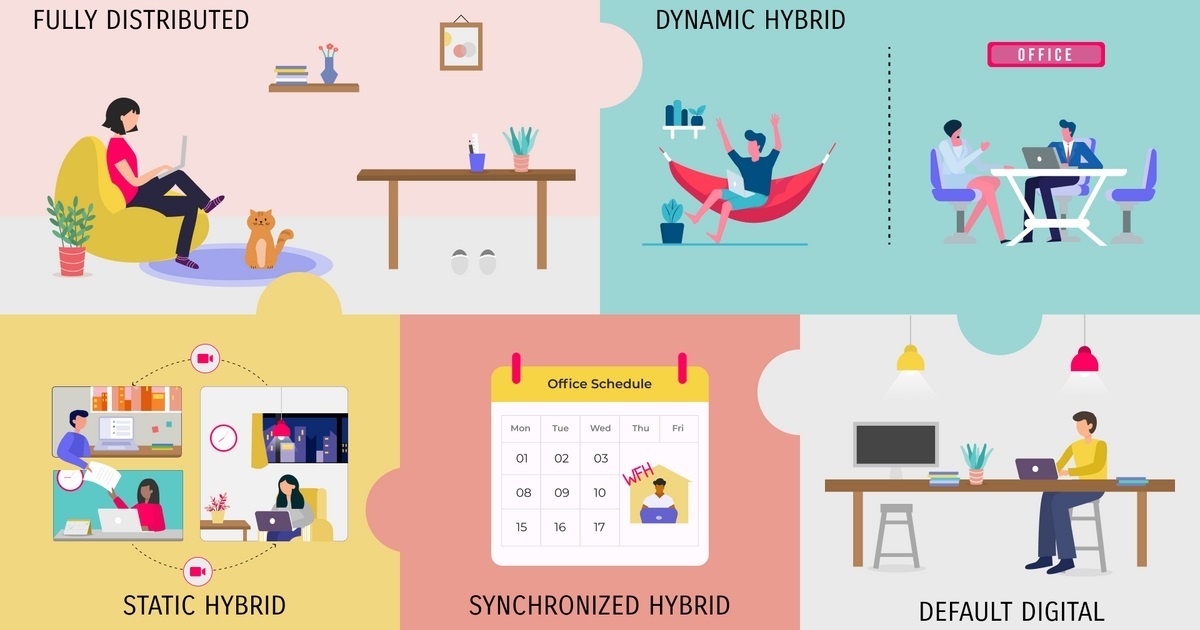
Adapting to Change: The Role of Hybrid Work Environment Insurance
The advent of hybrid work environments, combining remote and in-office work, has reshaped the landscape of modern workplaces. This article delves into the significance of Hybrid Work Environment Insurance, exploring its role in mitigating risks and providing comprehensive coverage for businesses navigating the complexities of a flexible and dynamic work model.
The Evolution of Work Environments
The traditional office-centric work model has evolved, giving rise to hybrid work environments. This shift is driven by technological advancements, changing employee preferences, and the recognition that a flexible approach to work can enhance productivity and work-life balance. As businesses embrace this evolution, new challenges and risks emerge, necessitating tailored insurance solutions.
Addressing Cybersecurity Challenges
Hybrid work models often rely on increased digital connectivity, creating new entry points for cyber threats. Hybrid Work Environment Insurance addresses cybersecurity challenges associated with remote work, providing coverage for data breaches, unauthorized access, and other cyber risks that can potentially impact businesses operating in a hybrid environment.
Coverage for Remote Work Ergonomics
With remote work becoming a substantial component of the hybrid model, concerns about ergonomic setups and potential health issues arise. Hybrid Work Environment Insurance includes coverage for ergonomics-related risks, ensuring that businesses can support employees in creating comfortable and productive remote workspaces while mitigating the associated liabilities.
Managing Employee Well-being
Employee well-being is a crucial aspect of a successful hybrid work model. Insurance tailored to the hybrid work environment extends coverage for mental health support, wellness programs, and other initiatives that contribute to maintaining a healthy and engaged workforce, whether employees are in the office or working remotely.
Ensuring Compliance in a Hybrid Setting
Navigating compliance requirements in a hybrid work environment can be intricate, considering the varied regulations associated with remote and office-based work. Hybrid Work Environment Insurance assists businesses in ensuring compliance with employment laws, data protection regulations, and other legal considerations relevant to the hybrid work model.
Flexible Coverage for Workspace Dynamics
Hybrid work environments introduce fluidity to the concept of workspace. Employees may work from home, the office, or alternate between locations. Hybrid Work Environment Insurance offers flexible coverage that adapts to the changing dynamics of workspace usage, ensuring comprehensive protection regardless of where work is conducted.
Coverage for Travel-related Risks
In a hybrid work model, employees may need to travel between home and the office or engage in business trips. Travel-related risks, such as accidents or health emergencies, are considerations for businesses adopting a hybrid approach. Hybrid Work Environment Insurance includes coverage for such travel-related risks, providing financial protection for employees and the business.
Promoting Inclusivity and Equality
Hybrid work models have the potential to foster inclusivity and equality by accommodating diverse work preferences and lifestyles. Insurance tailored to the hybrid work environment includes provisions to promote equal opportunities, fair treatment, and diversity, contributing to a positive and inclusive workplace culture.
Educating Businesses on Hybrid Work Insurance Benefits
As businesses transition to hybrid work models, understanding the benefits of specialized insurance becomes paramount. Insurers actively engage in educating businesses about the advantages of Hybrid Work Environment Insurance, emphasizing how tailored coverage can mitigate risks, enhance employee satisfaction, and support the overall success of the hybrid work model.
Looking Ahead: Hybrid Work Insurance in the Future
Hybrid Work Environment Insurance stands as a strategic investment for businesses navigating the evolving landscape of work. As the hybrid model continues to gain prominence, the role of insurance in providing adaptive and comprehensive coverage will be instrumental in ensuring the resilience and success of businesses in this dynamic and flexible work environment.
To learn more about the significance of Hybrid Work Environment Insurance, visit Hybrid Work Environment Insurance for insights into cutting-edge solutions and strategies shaping the future of insurance for hybrid workplaces.


